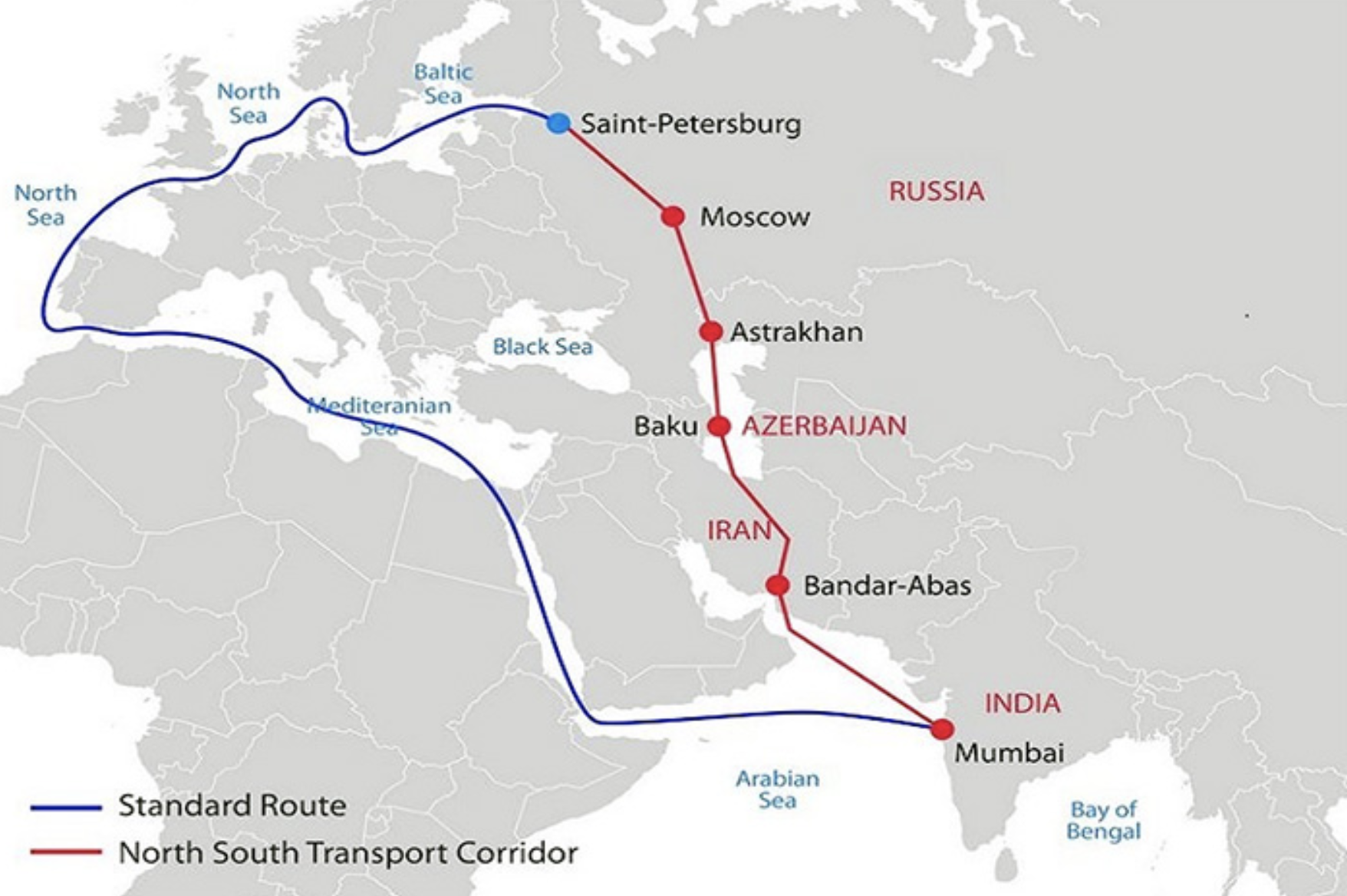An important step towards strengthening India’s trade, business and investment ties in the Caucasus would be to strengthen and expand engagement with Azerbaijan.
New Delhi
India’s traditional relations with countries in the South Caucasus are built on the foundation of historical ties.Although India was quick in recognising the three Caucasian countries, Armenia, Georgia and Azerbaijan in 1992, it downplayed the importance of cultivating bilateral ties with them.The emerging importance of Eurasian geopolitics has made it imperative to discussIndia’s footprintin the region.
Althoughin recent years India has made substantial economic inroads in the region,the depth of India’s political exchange and engagement with South Caucasus countries remains low key.Political interaction has largely been confined to institutional mechanisms such as Foreign Office consultation/Inter-Governmental Commissions at senior officials’ levels.At present, India’s relations with South Caucasus countries are based on interests and principles.
Meanwhile, India’s engagement on the trade and investments front has been driven largely by the private sector engagement. The government on its part has endeavoured to create an enabling legal framework by signing agreements such as Avoidance of Double Taxation, Bilateral Investment Protection with Armenia, negotiating a Free Trade Agreement with Georgia. India’s gains in bilateral trade with Armeniais possible once a Free Trade Agreement (FTA) between India and the Eurasian Economic Union (EAEU) is concluded. In recent years there have been important breakthrough agreements on defence supplies from India to Armenia.
Azerbaijan remains India’s biggest trading partner in the South Caucasus.India exported products worth $79.4M and its import amounted to $595M from Azerbaijan. Whereas India’s quantum of trade with Armenia and Georgia stands at $92.4M (Exports), $249 (Imports) and$133M (Exports) $28.3M(Imports) respectively. Over the years, India’s bilateral trade with Azerbaijan increased substantially from around US$50 million in 2005 to US$739 million in 2021. Available data reveals that bilateral trade further increased to US$1.882 billion in 2022, registering 156.4% increase. Hence, India’s volume of trade isan important driver in India’s relations with Azerbaijan in the South Caucasus. While oil and natural gas are the main products of trade, pharmaceuticals, tourism, IT, science and technology, agriculture and education have emerged as other areas of cooperation too.
During a conversation with Prof. Harsh Pant in March 2023, Deputy Foreign Minister, Republic of Azerbaijan, Elnur Mammadovunderscored that the 5th round of political consultations between India and Azerbaijan in November 2022 marked an important boost in India-Azerbaijan bilateral relations.In the new matrix of Azerbaijan’s foreign policy, Ambassador Elnur Mammadov said, the initiated discussion on economic cooperation, education, potential of tourism, during the latest political consultations has givenimpetus to India-Azerbaijan bilateral relations.
AZERBAIJANIN THE CENTER OF INDIA’S CONNECTIVITY GOALS
Azerbaijan is one of the nodal points of the North South Transport Corridor (INSTC), a multi-modal transportation route linking the Indian Ocean and the Persian Gulf to the Caspian Sea via Iran and onward to northern Europe via St. Petersburg in Russia.
In the recent past India expressed its eagerness to link the Chabahar Port with the INSTC so it can become a transit hub for trade with countries in the Commonwealth of Independent States. In July 2022, the first shipment using the INSTC arrived at Jawaharlal Nehru Port in Mumbai, having originated from Russia’s Astrakhan Port,almost five years after India agreed to use the INSTC.
The strategically located route has the potential to boost inter-trade connectivity between Central and South Asia and rationalize logistics costs. INSTC involves sea routes, rail links, and road connections that connect Mumbai in India to Saint Petersburg in Russia, passing through Chabahar. The INSTC is projected to reduce transit time by 40%, shortening it from 45-60 days to 25-30 days. Additionally, it is expected to decrease freight costs by 30% in comparison to the Suez Canal route.
However, the main challenges faced by INSTC are that the majority of projects exceptthe Azerbaijan and KTI railway lines, the Chabahar Port, and the Ashgabat Agreement transport corridor, have not received financial
THE WAY FORWARD
Following the fifth round of India-Azerbaijan foreign office consultations in November 2022, the Ministry of External Affairs issued a statement stressing that Azerbaijan is emerging as an important supplier of crude oil to India. In the meeting, the two sides reviewed India-Azerbaijan bilateral relations comprehensively including, political, trade & economic, consular, cultural and education matters. Views were also exchanged on regional issues and cooperation in the UN and other multilateral bodies.
As the span and verticals of India Azerbaijan bilateral ties are expanding, the two countries have successfully diversified cooperation in various areas, especially in the trade, commerce and energy sectors. India’s ONGC Videsh Limited has made substantial investments in Azerbaijan’s energy sector. ONGC Videsh has significant interests in Azerbaijan’s hydrocarbon sector too;India’s crude oil imports from Azerbaijan in 2021 were worth $584 million. India’s pharmaceutical industry has established a foothold in Azerbaijan. On the trade front Azerbaijan has opened up to promote Indian products through trade fairs and exhibitions.As per the available data, bilateral trade has grown many-folds and stands at around US$1 billion (January to September 2022). As per latest reports, atleast 1,000 Indian companies are registered in Azerbaijan.
Taking a step towards improving the communication between India and Azerbaijan direct flights between New Delhi, Mumbaiand Baku, the capital and largest city of Azerbaijan, were launched in 2022. In the span of the last one year Baku has shown its interest in expanding ties with India many-folds including in areas of soft power like yoga and Ayurveda.
An important step towards strengthening India’s trade, business and investment ties in the Caucasus would be to strengthen and expand engagement with Azerbaijan, a leading economy in the region. More dialogue and engagement with the region would eventually put a process in place to figure out the points of convergence and differences.
Angana Guha Roy is Research Associate with Delhi Policy Group.

